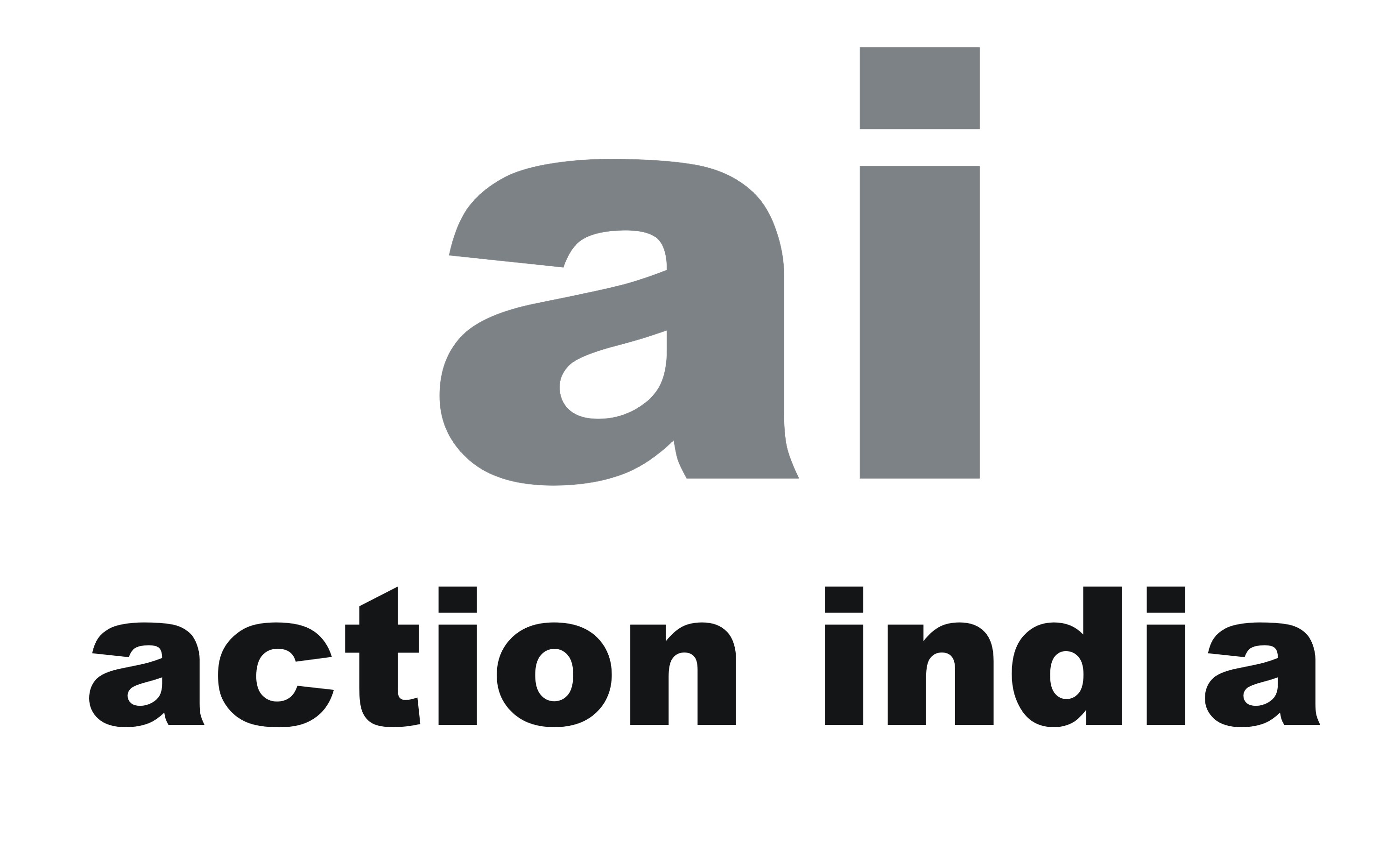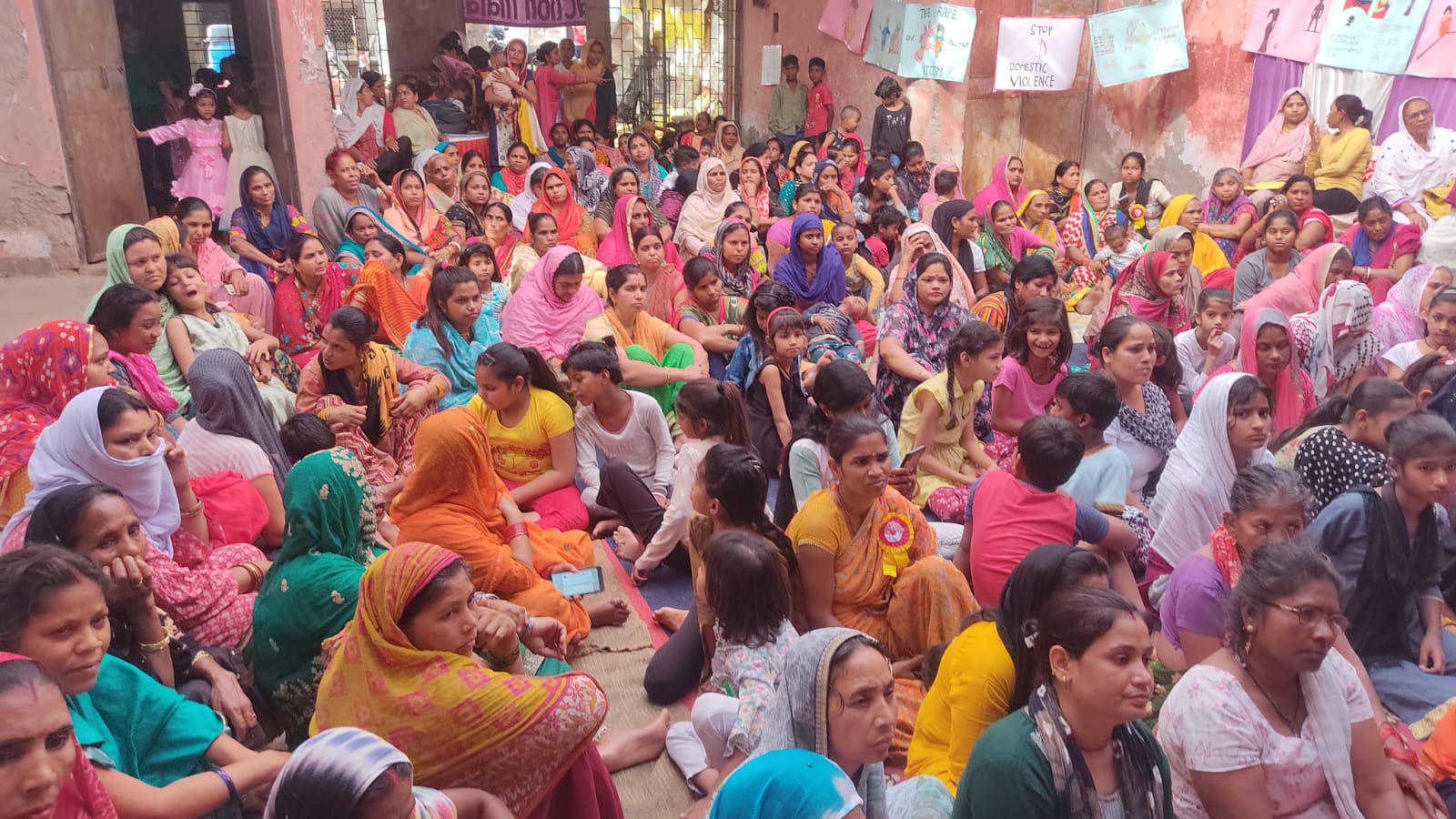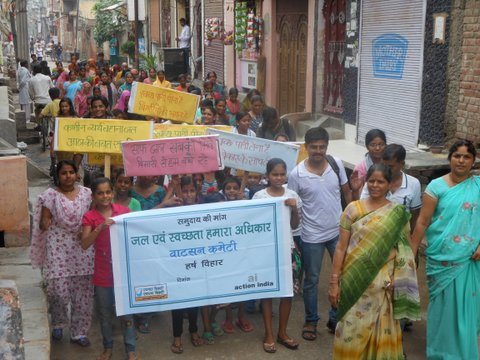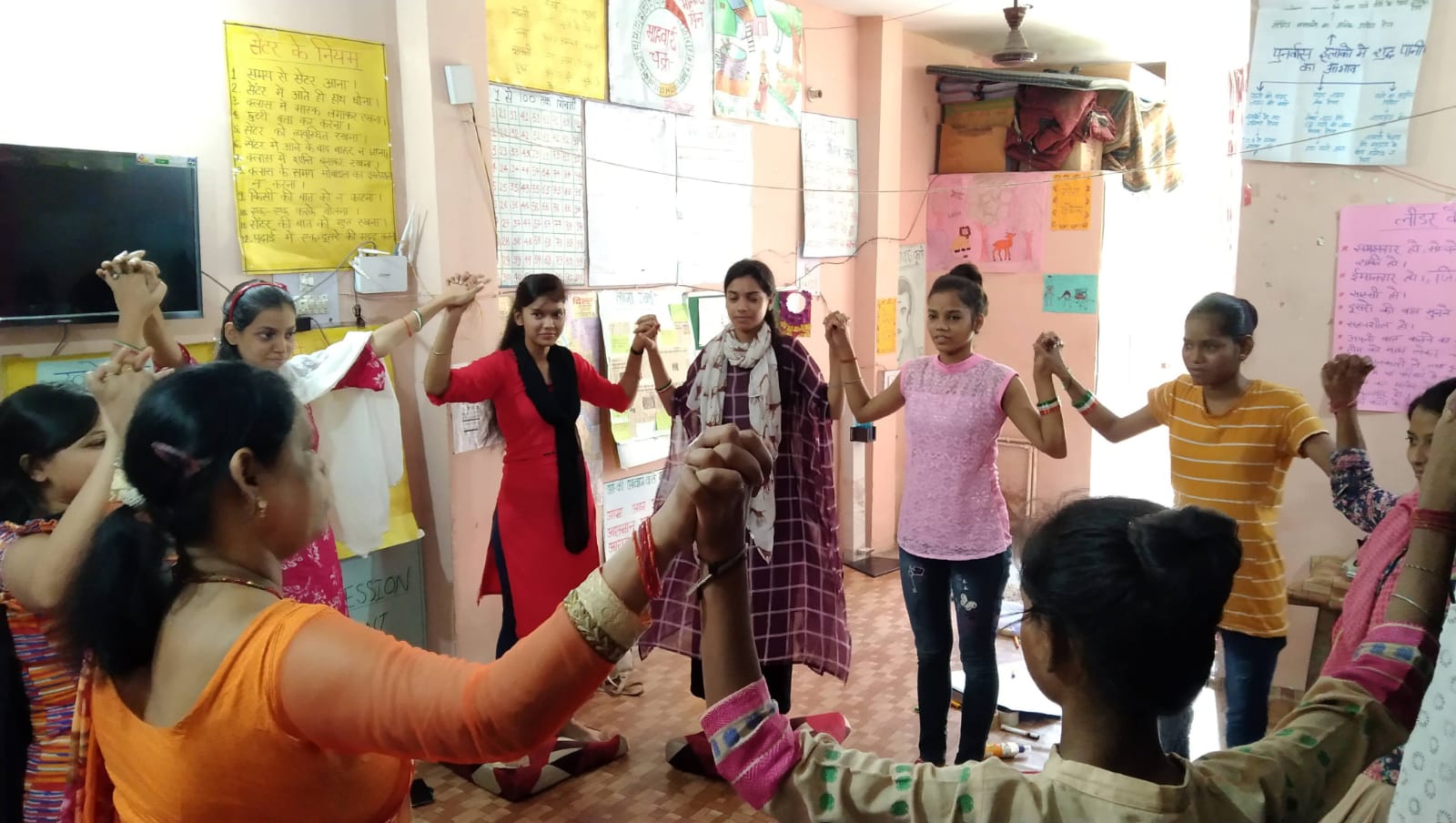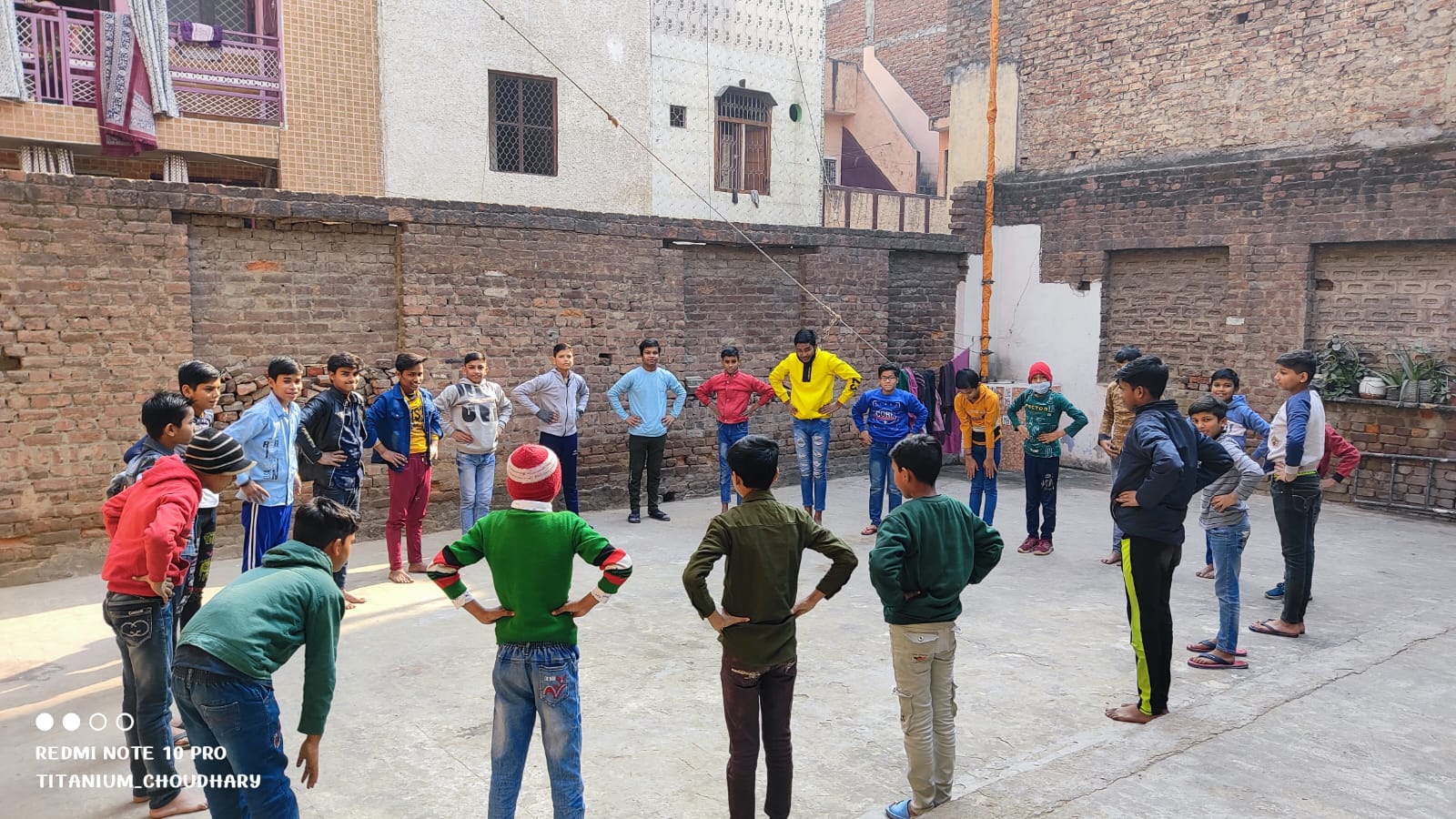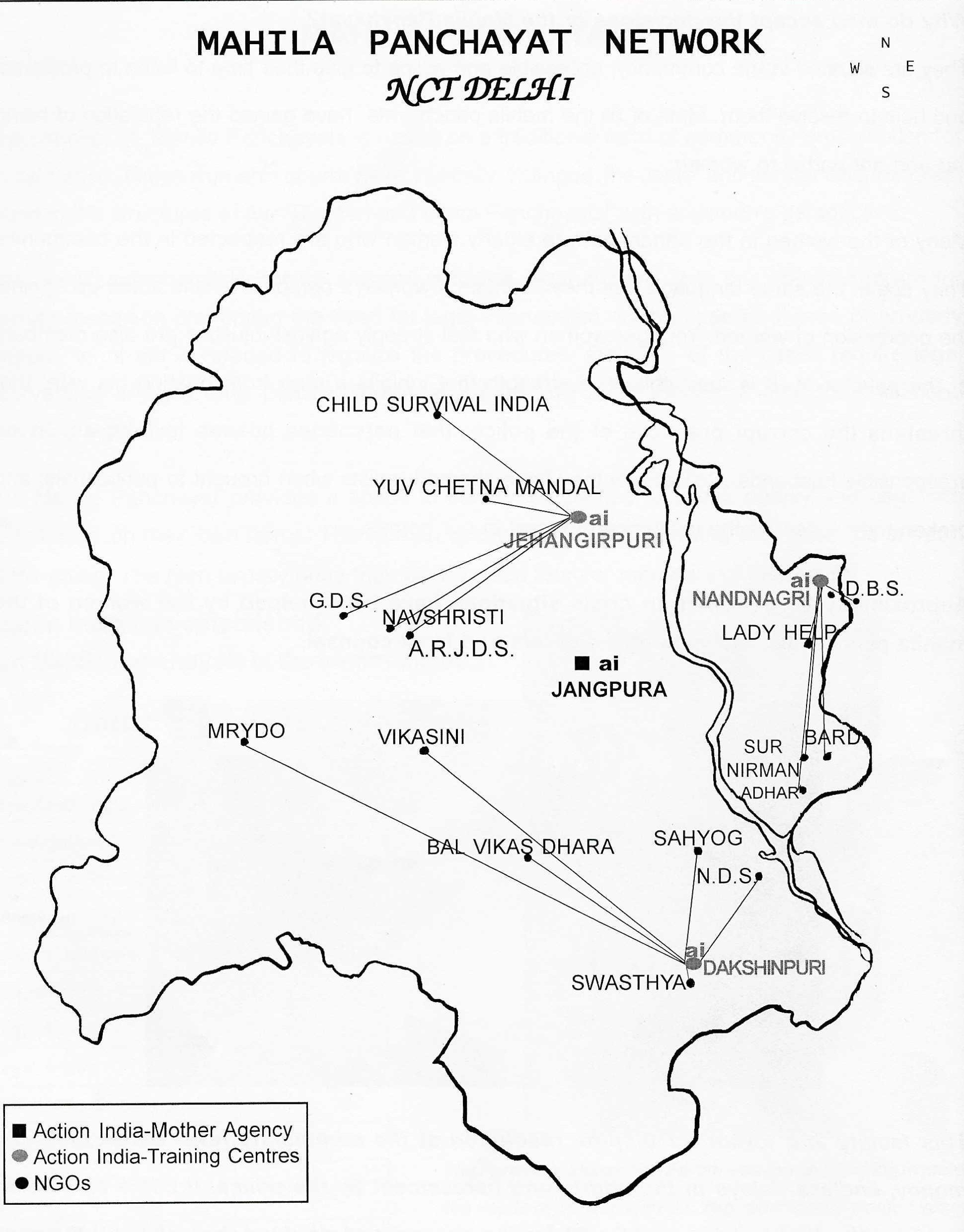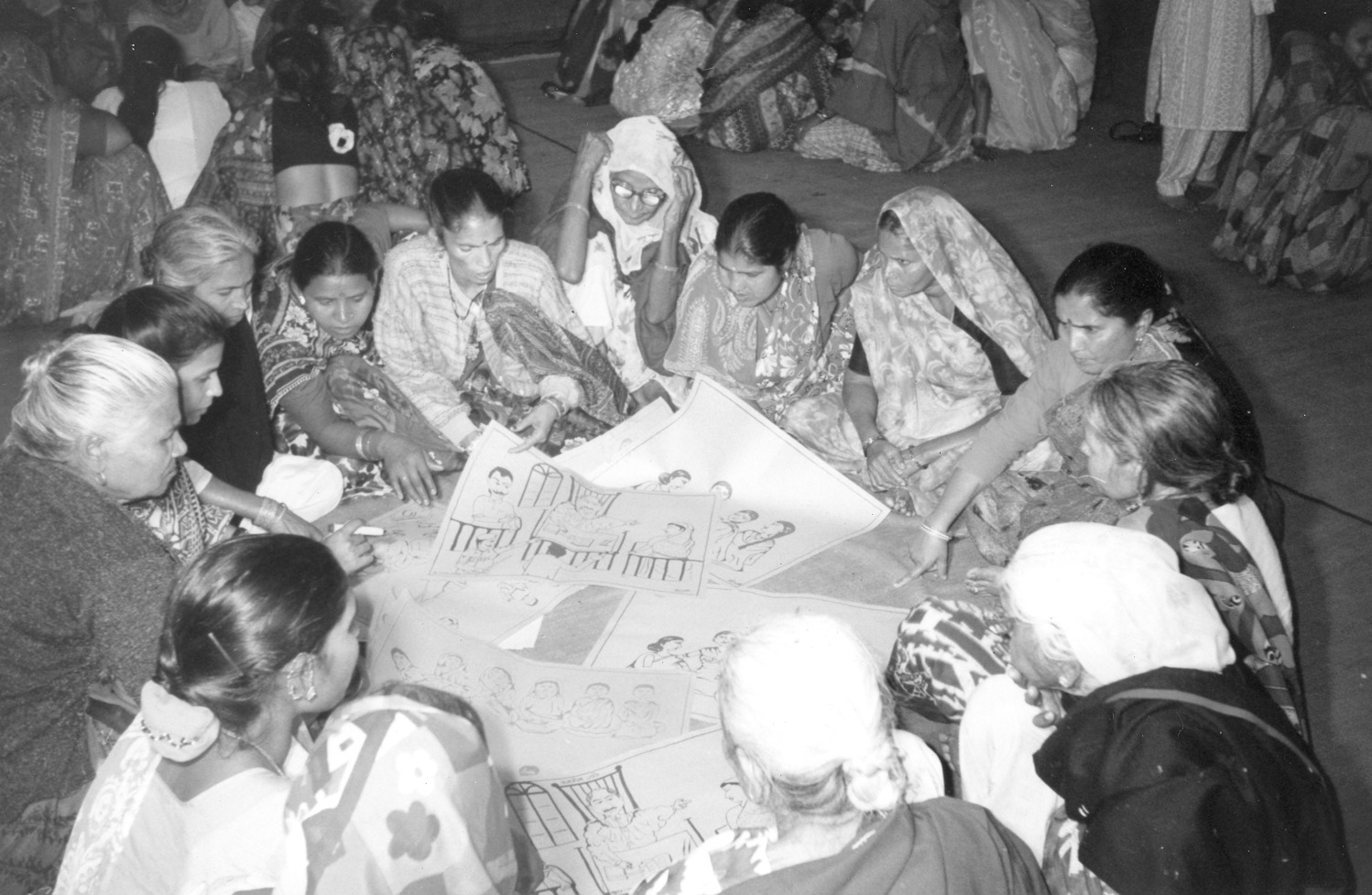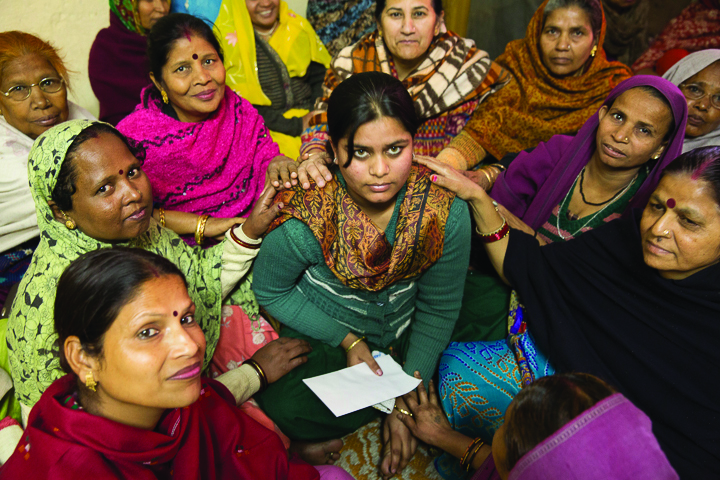
Mahila Panchayat
The concept of creating a gender just jurisprudence grew out of our experience of the last 25 years of working with women in the urban slums of Delhi. Women, Law and Social Change was conceived as an action-research project in 1994. Our strategy for intervention has been based on the mobilization of women to actively participate in the debates on the need for legislative reform in the process of social transformation.
The legal system and the state failed to deliver justice or resolve disputes abounding in a growing population in the metropolis. The crisis intervention strategy initiated by the Sabla Sangh was formalized by developing Mahila Panchayats. The strategy of crisis intervention was also carried forward to other women’s organisations working on domestic violence.
Categories of Cases dealt by Mahila Panchayats: Verbal and emotional violence, divorce, demand for dowry, dowry retrieval, physical abuse due to alcoholism, sexual violence, extra marital affairs, bigamy, infertility, child custody, violence in live-in-relationships, sexual harassment in public place.
Structure: 25 Mahila Panchayat members across 6 hubs provide support to victims of violence and investigate and follow-up cases. At least 15 members attend the weekly panchayat hearing to ensure that the collective judgement is fair and impartial. In each hub around 4 cases are heard per week and 3 emergency cases are taken up.
Each panchayat consists of one hub coordinator, one paralegal and one facilitator. Master trainers are trained on the gender perspective on Gender Based Violence to promote feminist counselling and understanding women's rights to live with dignity in order to develop their perspective on Gender Equality and Legal Rights of Women.
Our Mahila Panchayats have demonstrated the importance of the community redressal mechanism as the first port of call for women to step up and speak out about domestic violence including intimate partner violence. The network of six Mahila Panchayats has greatly enhanced women's access to the legal justice system in accordance with the PWDVA, 2005. Community-level dispute resolution is seen as a strength of the Mahila Panchayats in their role as a women's support mechanism.
